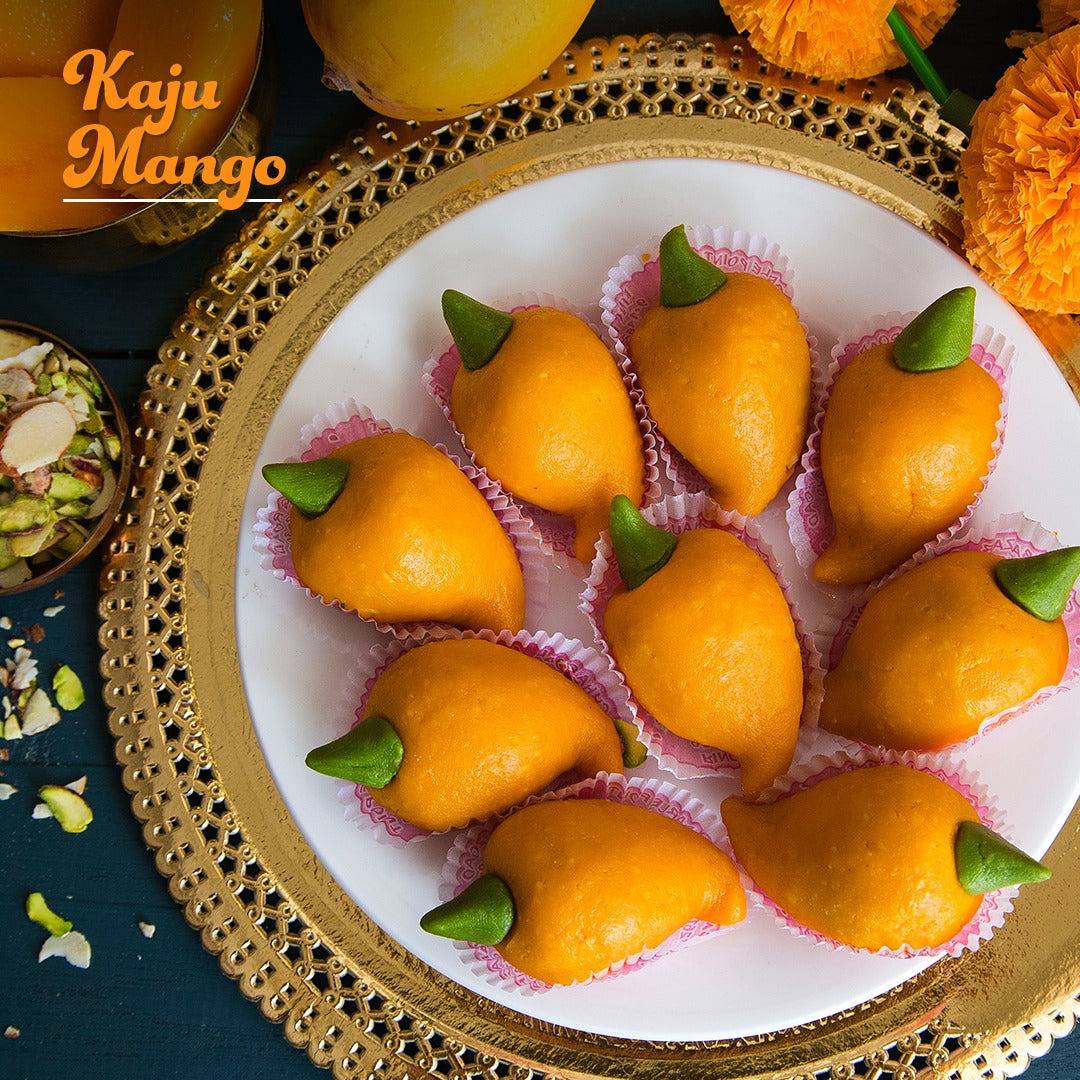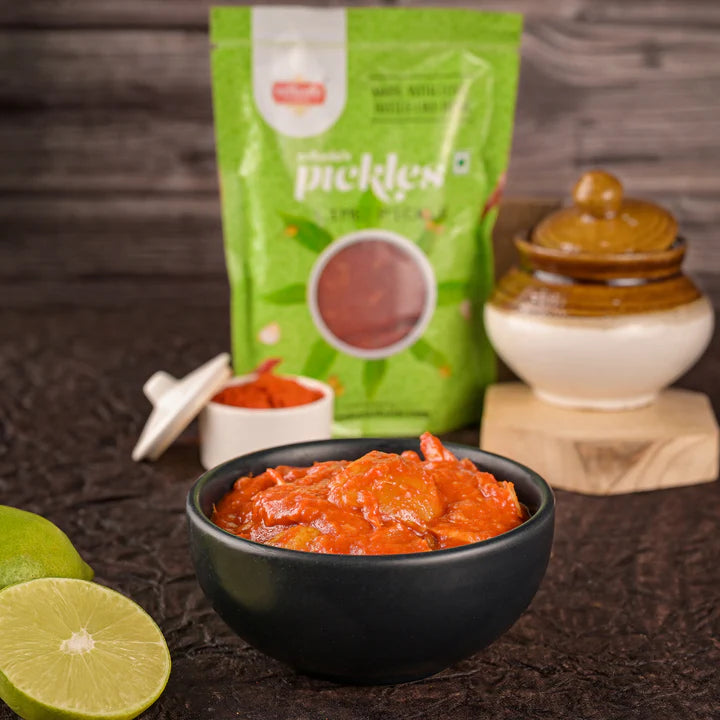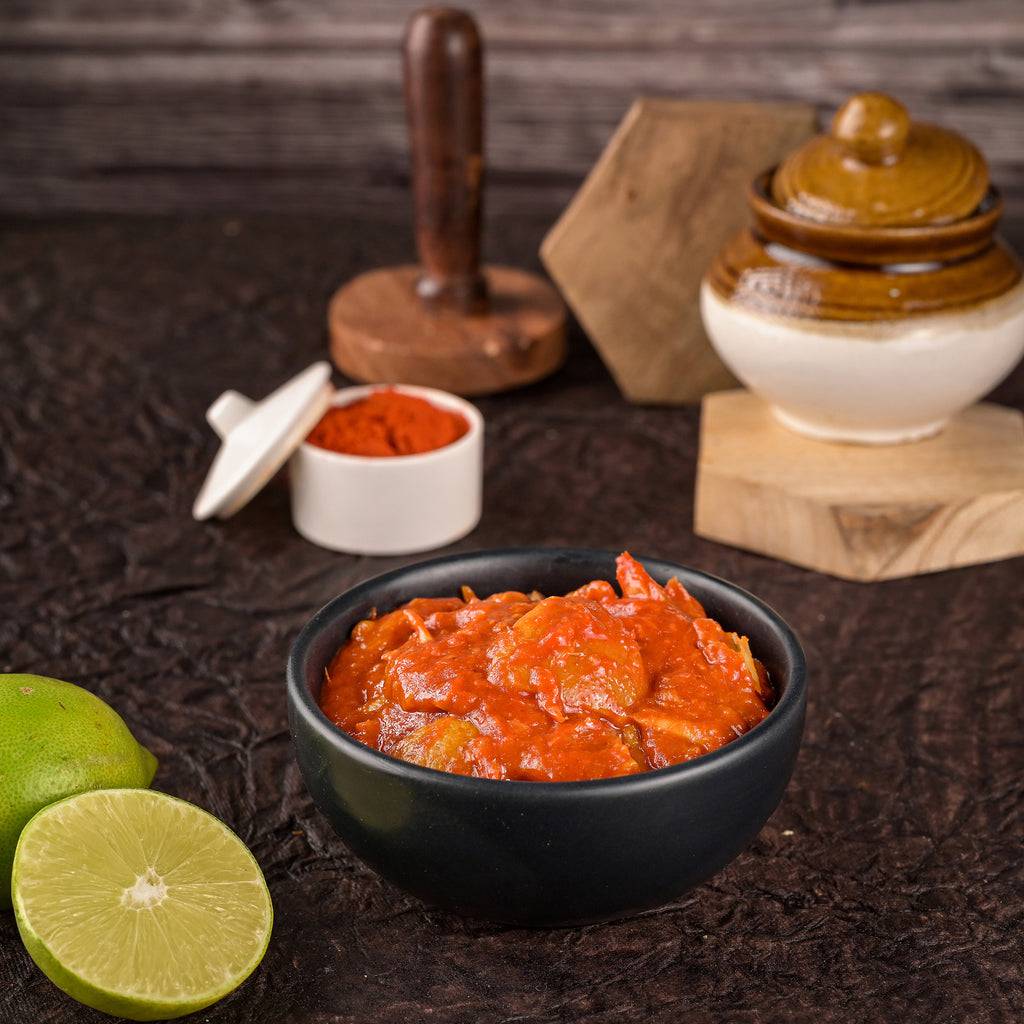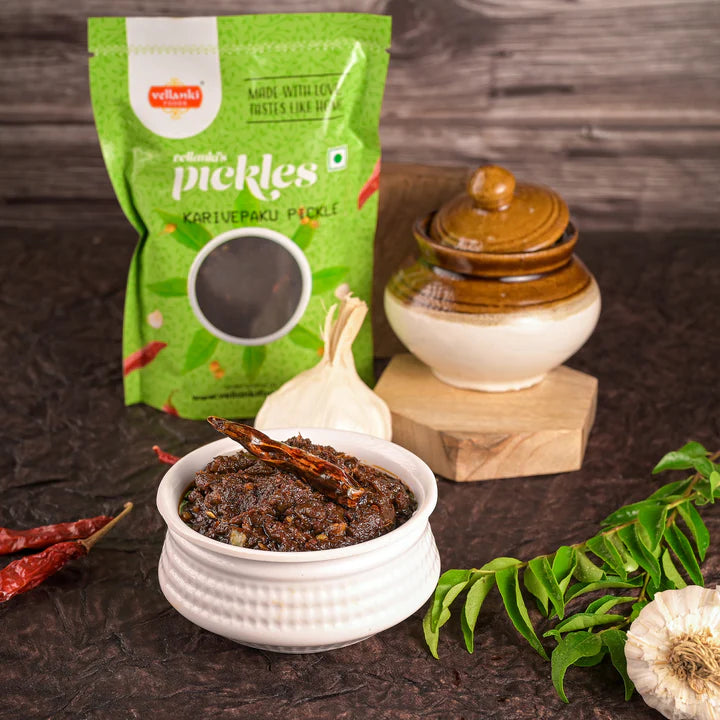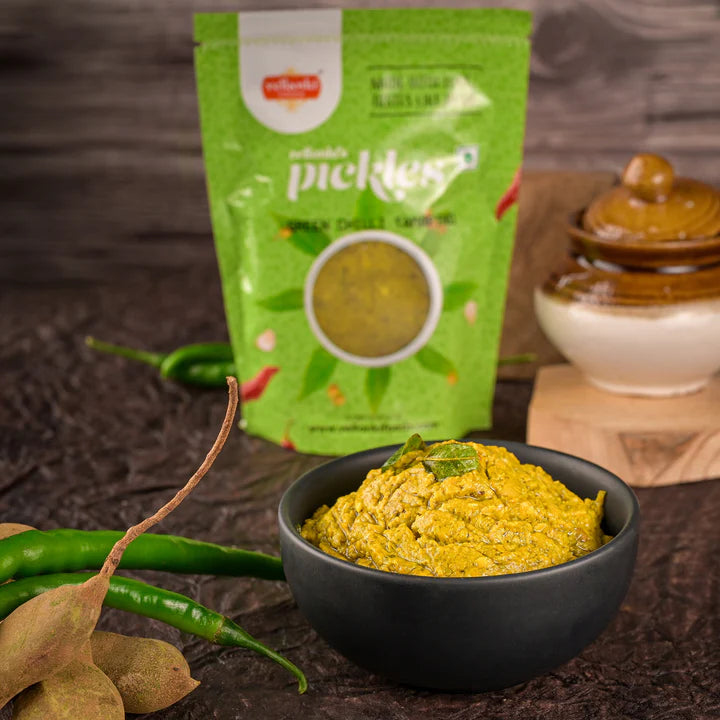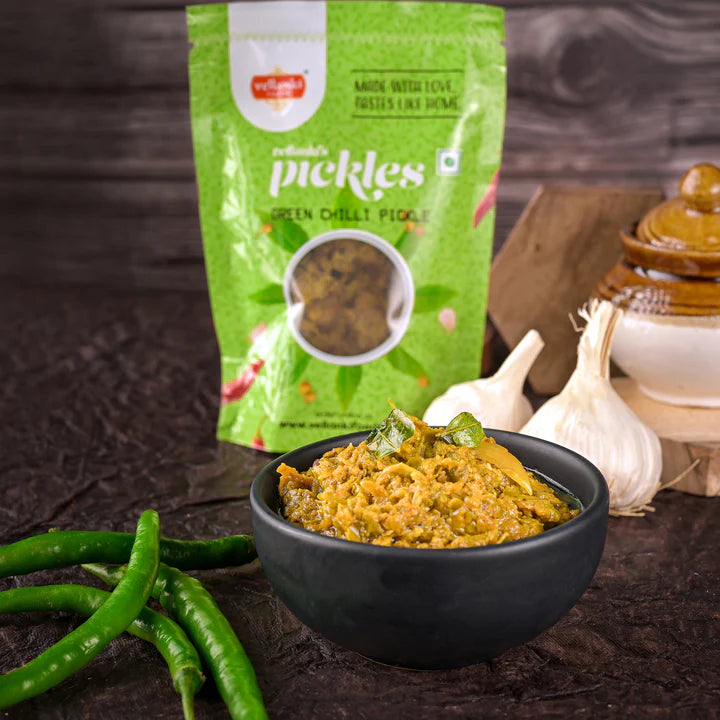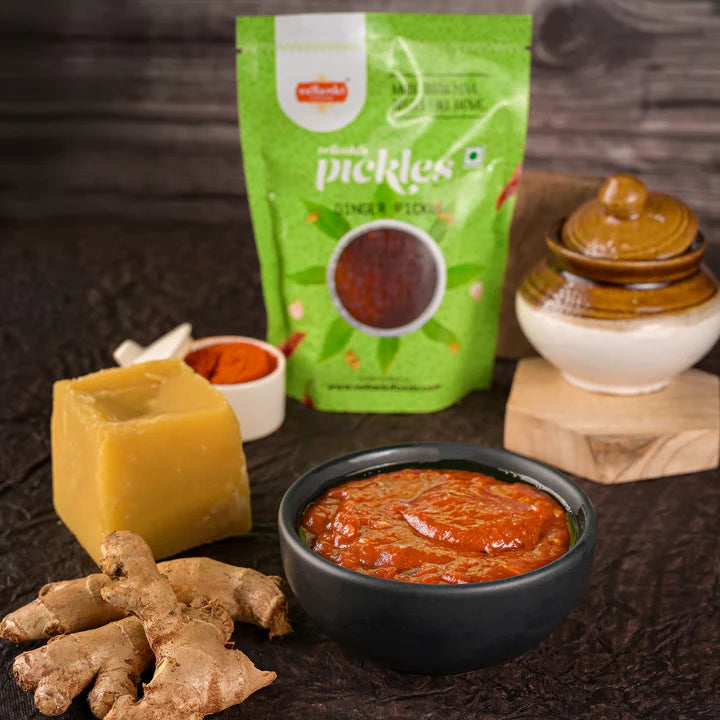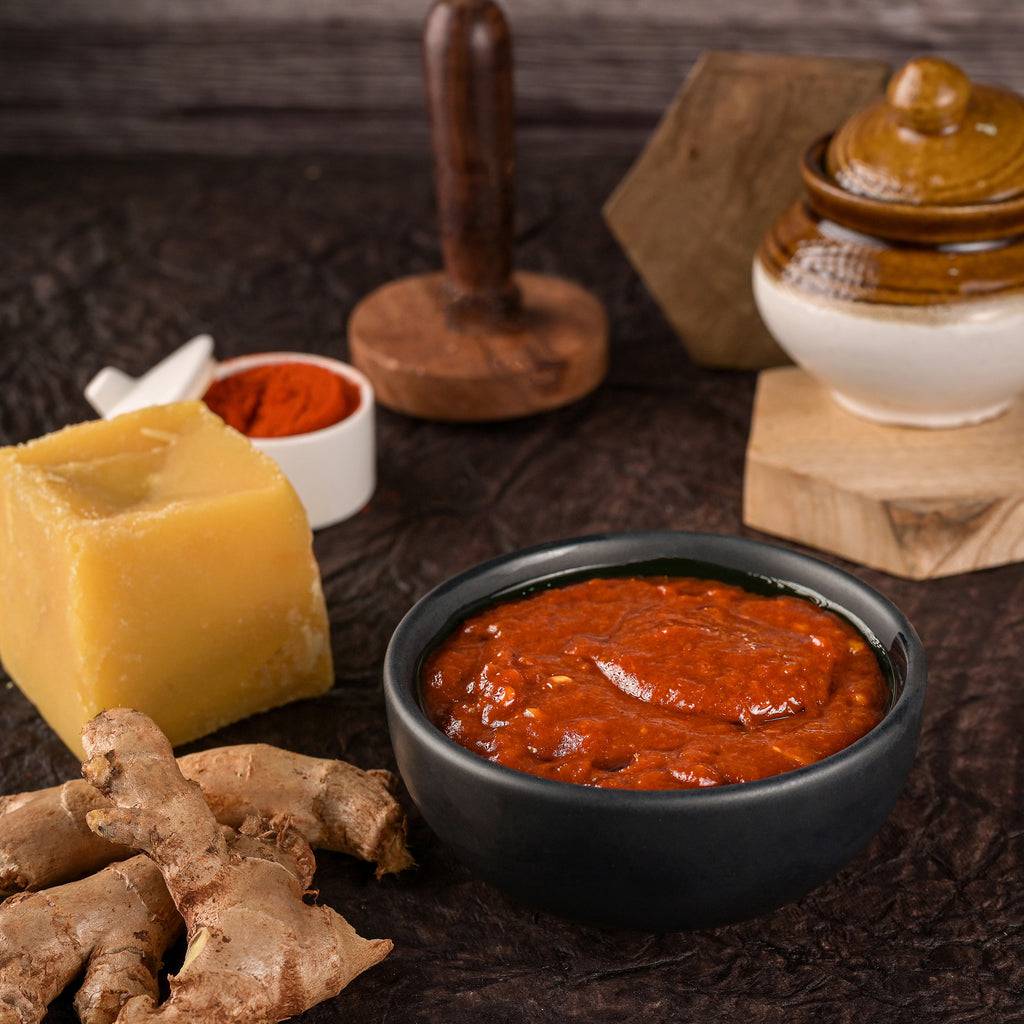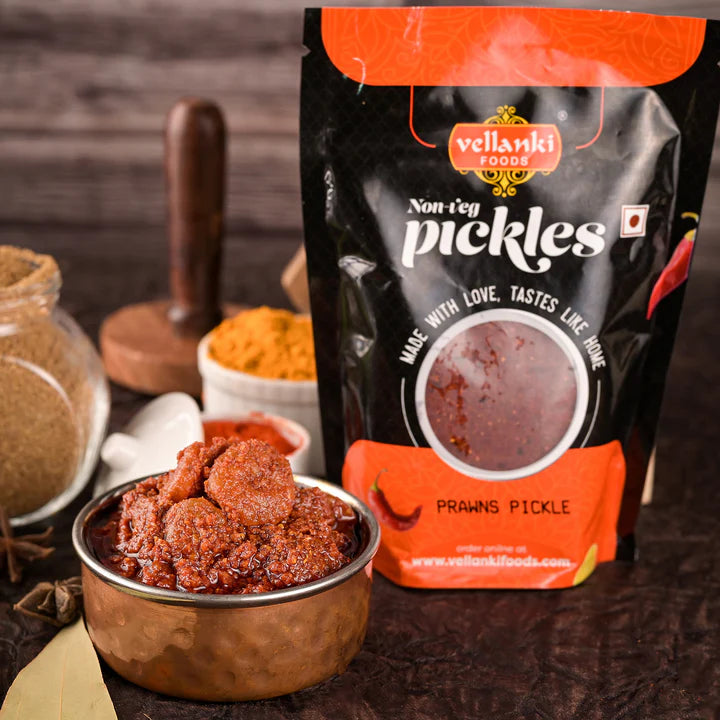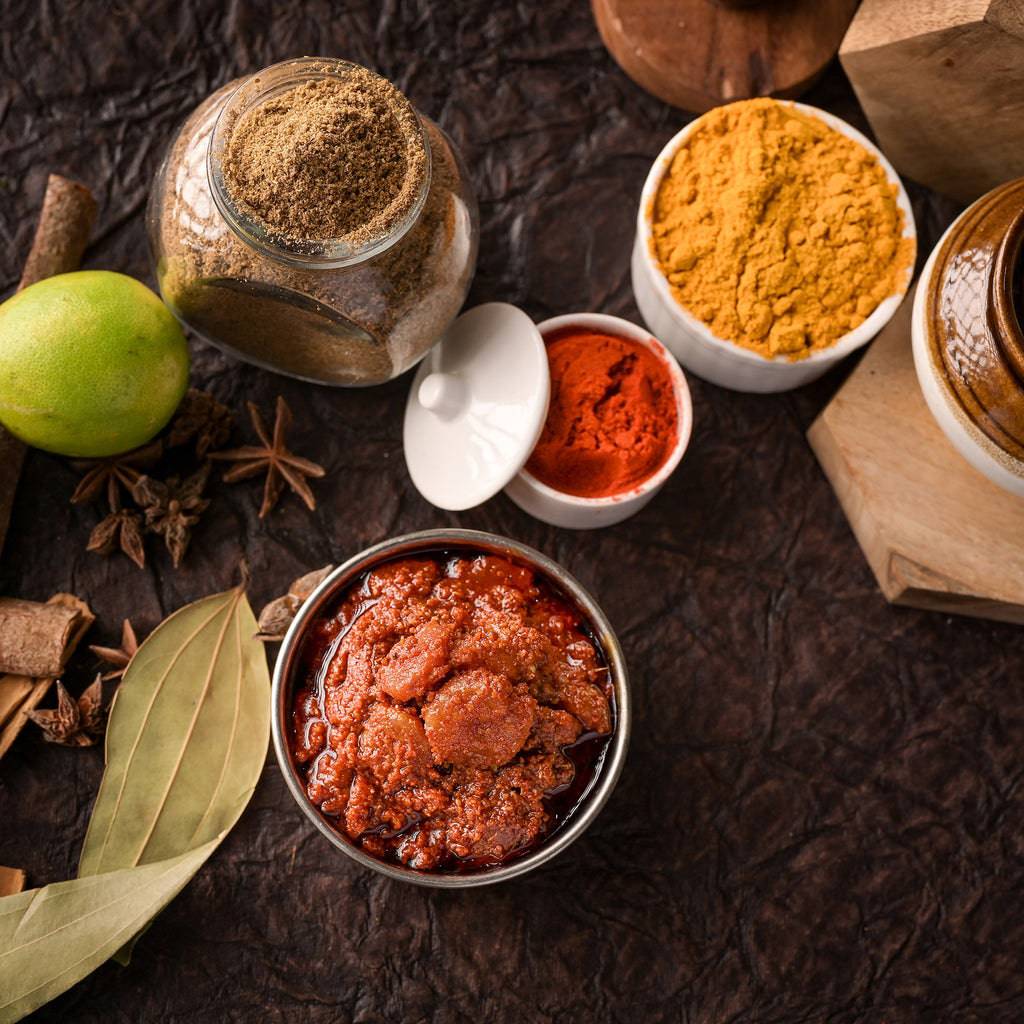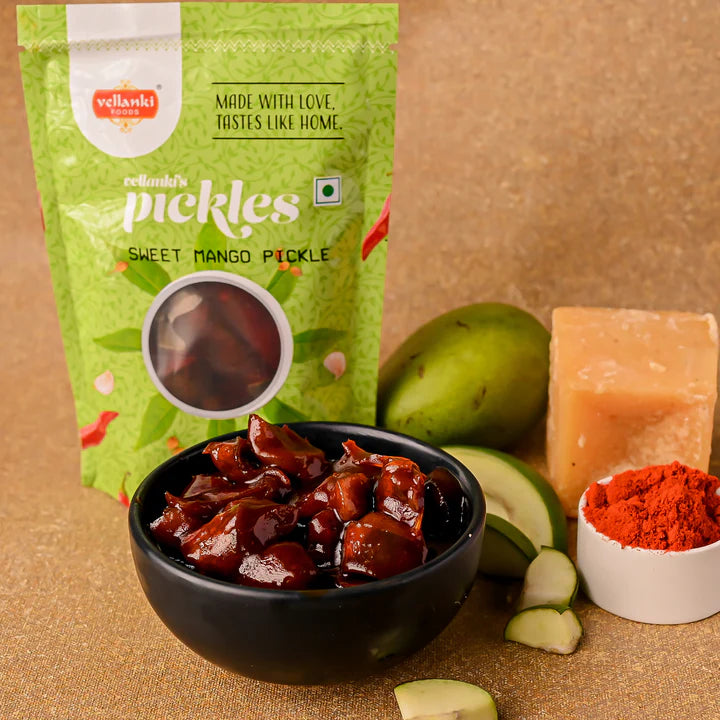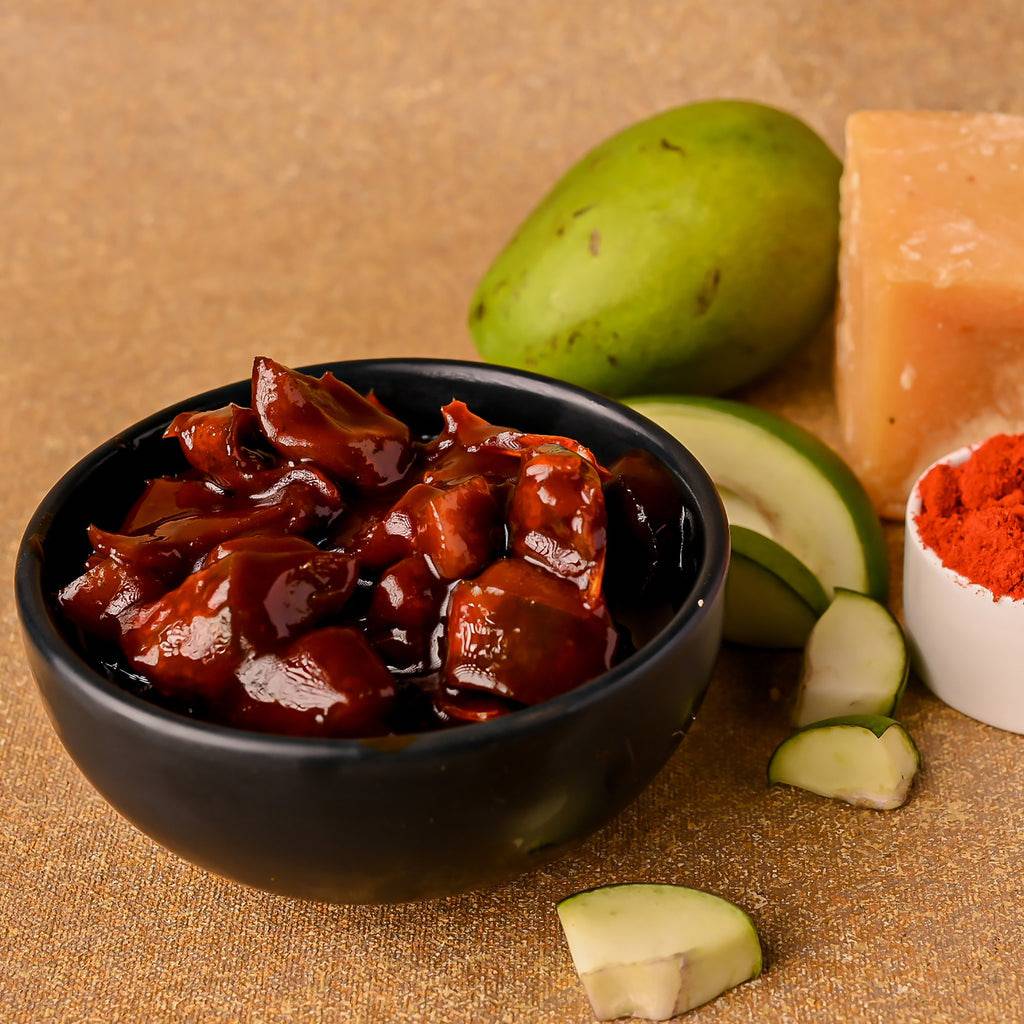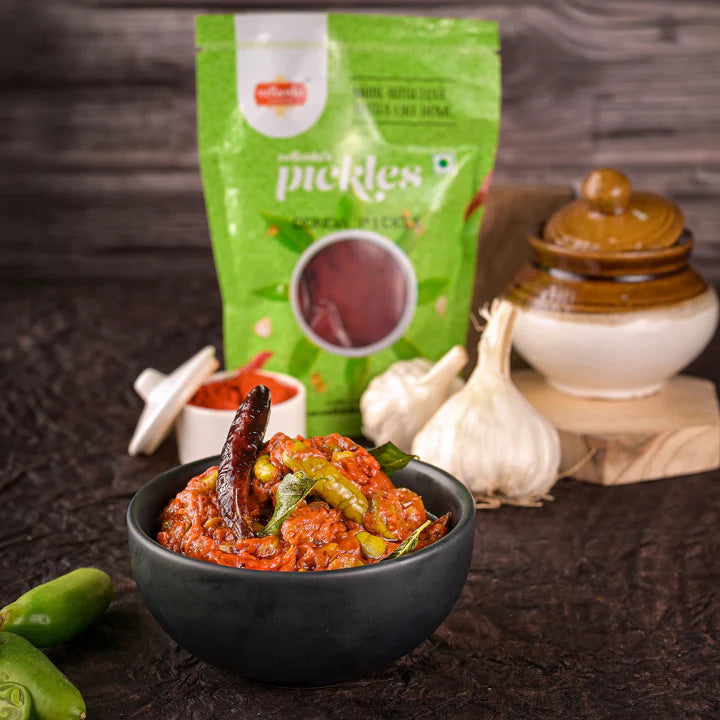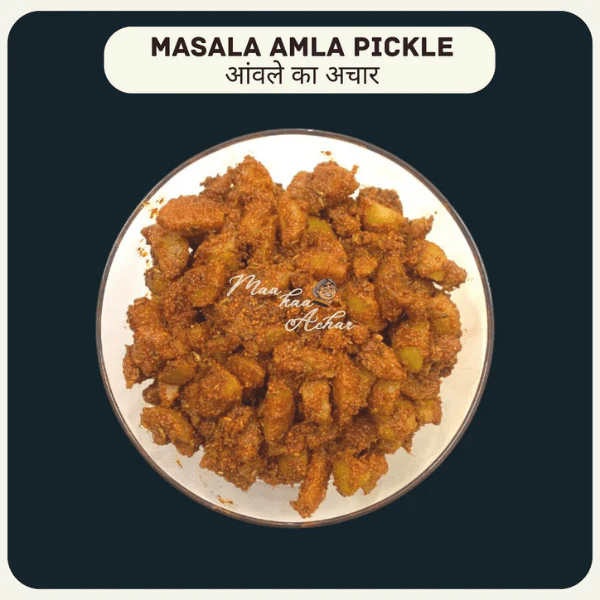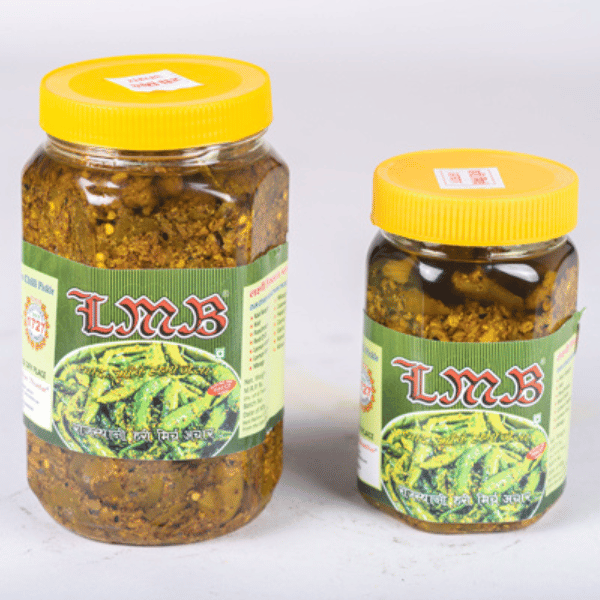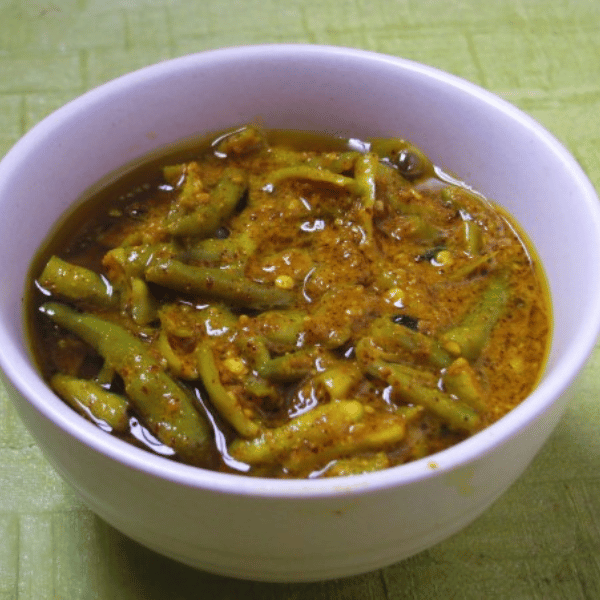 Indian pickles, known as achar in Hindi, are a vibrant and integral part of Indian cuisine. These tangy, spicy, and sometimes sweet condiments are made by preserving vegetables, fruits, or even meats in a mixture of spices, oils, and vinegar or brine. Beyond their role as a flavor enhancer, Indian pickles offer a range of health benefits when consumed in moderation as part of a balanced diet. This article explores the nutritional value, health benefits, and considerations of including Indian pickles in your regular diet.
Indian pickles, known as achar in Hindi, are a vibrant and integral part of Indian cuisine. These tangy, spicy, and sometimes sweet condiments are made by preserving vegetables, fruits, or even meats in a mixture of spices, oils, and vinegar or brine. Beyond their role as a flavor enhancer, Indian pickles offer a range of health benefits when consumed in moderation as part of a balanced diet. This article explores the nutritional value, health benefits, and considerations of including Indian pickles in your regular diet.
What Are Indian Pickles?
Indian pickles are prepared by fermenting or preserving ingredients like mango, lime, green chilies, carrots, gooseberries, or mixed vegetables in a blend of spices such as mustard seeds, turmeric, fenugreek, cumin, and chili powder. The preservation process often involves sunflower, mustard, or sesame oil, along with salt and sometimes vinegar. The result is a bold, tangy condiment that complements rice, flatbreads, curries, and snacks.
Pickles vary across regions in India, reflecting local ingredients and culinary traditions. For example, mango pickle (aam ka achar) is popular in North India, while Andhra Pradesh is known for its fiery gongura (sorrel leaves) pickle. The fermentation process, in some cases, enhances the nutritional profile of these pickles, making them more than just a tasty side dish.
Top 15 Types of Indian Pickles You Must Try
Nutritional Profile of Indian Pickles
The nutritional content of Indian pickles depends on the ingredients used, the preparation method, and the type of oil or preservatives involved. Generally, Indian pickles are rich in:
-
Vitamins: Ingredients like mango, lime, and gooseberries are high in vitamin C, which supports immunity and skin health. Fermented pickles may also contain B vitamins produced during fermentation.
-
Antioxidants: Spices like turmeric, mustard seeds, and fenugreek are packed with antioxidants that combat oxidative stress in the body.
-
Minerals: Pickles made with vegetables or fruits may provide trace amounts of minerals like potassium, magnesium, and iron.
-
Probiotics: Fermented pickles, such as those made without vinegar, contain beneficial bacteria that support gut health.
-
Fiber: Some vegetable-based pickles provide dietary fiber, which aids digestion.
However, Indian pickles are often high in sodium and oil, which requires moderation to avoid potential health risks.
Health Benefits of Indian Pickles
Incorporating Indian pickles into your diet in small amounts can offer several health benefits. Below are some of the key advantages:
1. Supports Digestive Health
Indian pickles, especially fermented ones, are a source of probiotics—live beneficial bacteria that promote a healthy gut microbiome. Probiotics aid digestion, improve nutrient absorption, and may alleviate issues like bloating or constipation. The spices in pickles, such as cumin and fennel, also stimulate digestive enzymes, enhancing the breakdown of food.
For example, pickles made with gooseberries (amla) are known to improve appetite and digestion due to their high vitamin C content and natural enzymes.
2. Rich in Antioxidants
The spices and ingredients used in Indian pickles are loaded with antioxidants, which help neutralize free radicals in the body. Free radicals can cause cellular damage, leading to chronic diseases like heart disease and cancer. Turmeric, a common ingredient in many pickles, contains curcumin, a potent antioxidant with anti-inflammatory properties. Similarly, mustard seeds and fenugreek contribute polyphenols that protect against oxidative stress.
3. Boosts Immunity
Ingredients like amla, lime, and green chilies are rich in vitamin C, a vital nutrient for immune function. Vitamin C stimulates the production of white blood cells, which help the body fight infections. Additionally, the antimicrobial properties of spices like mustard and garlic used in pickles may help combat harmful bacteria and pathogens.
4. Improves Metabolism
Spices like black pepper, cumin, and chili powder in Indian pickles can boost metabolism by increasing thermogenesis (heat production in the body). This process may aid in burning calories and supporting weight management when consumed as part of a balanced diet. Capsaicin, found in chilies, is particularly known for its metabolism-boosting effects.
5. Preserves Nutrient-Rich Ingredients
The pickling process helps preserve the nutritional content of fruits and vegetables, making them available year-round. For instance, raw mangoes used in mango pickle retain their vitamin C and fiber, even after preservation. This allows you to enjoy the benefits of seasonal produce regardless of the time of year.
6. May Support Heart Health
Certain ingredients in Indian pickles, such as mustard oil and fenugreek, contain heart-healthy fats and compounds. Mustard oil is rich in monounsaturated fatty acids (MUFAs), which may help reduce bad cholesterol (LDL) levels. Fenugreek seeds have been shown to lower blood cholesterol and improve blood sugar control, both of which are beneficial for cardiovascular health. However, the high sodium content in pickles necessitates moderation to avoid counteracting these benefits.
7. Enhances Appetite and Flavor
Indian pickles add a burst of flavor to meals, making them more enjoyable and encouraging mindful eating. For individuals with poor appetite due to illness or medication, the tangy and spicy nature of pickles can stimulate taste buds and improve food intake.
Considerations and Potential Risks
While Indian pickles offer health benefits, they should be consumed in moderation due to certain factors:
-
High Sodium Content: Pickles are often preserved with large amounts of salt, which can contribute to high blood pressure and water retention if consumed excessively. Individuals with hypertension or kidney issues should limit their intake.
-
High Oil Content: Many pickles are prepared in oil, which increases their calorie content. Overconsumption may lead to weight gain or digestive discomfort.
-
Spiciness: The high chili content in some pickles may cause gastric irritation or acid reflux in sensitive individuals.
-
Preservatives: Commercially produced pickles may contain artificial preservatives or excessive vinegar, which could affect gut health if consumed regularly.
To maximize the benefits, opt for homemade or artisanal pickles with natural ingredients and minimal preservatives. Additionally, consume pickles as a condiment (1–2 teaspoons per meal) rather than a main dish.
How to Incorporate Indian Pickles into Your Diet
Here are some practical ways to enjoy Indian pickles while maintaining a balanced diet:
-
Pair with Meals: Add a small spoonful of pickle to rice, dal, or flatbreads to enhance flavor without overconsuming sodium or oil.
-
Use as a Marinade: Mix pickle paste with yogurt or water to create a tangy marinade for grilled vegetables or meats.
-
Top Snacks: Spread a thin layer of pickle on crackers or sandwiches for a spicy kick.
-
Balance with Cooling Foods: Combine pickles with cooling foods like yogurt or cucumber to balance their heat and prevent digestive discomfort.
-
Choose Low-Sodium Options: Look for pickles with reduced salt or make your own at home to control the ingredients.
Conclusion
Indian pickles (achar) are more than just a flavorful addition to meals—they offer a range of health benefits, from supporting digestion and immunity to providing antioxidants and preserving nutrient-rich ingredients. Their vibrant spices and fermented varieties make them a unique and nutritious condiment when consumed in moderation. However, their high sodium and oil content calls for mindful consumption, especially for individuals with specific health conditions.
By incorporating small amounts of high-quality, preferably homemade pickles into your diet, you can enjoy their tangy goodness while reaping their nutritional rewards. So, the next time you savor a spoonful of mango or lime pickle, know that you’re not just indulging in a culinary delight but also nourishing your body in moderation.
Frequently Asked Questions (FAQs)
Q: Are Indian pickles healthy to eat every day?
A: Indian pickles can be part of a healthy diet when consumed in moderation (1–2 teaspoons per meal) due to their vitamins, antioxidants, and probiotics. However, their high sodium and oil content means excessive daily consumption may lead to health issues like high blood pressure or weight gain. Balance them with low-sodium, nutrient-rich foods.
Q: Can Indian pickles help with weight loss?
A: Some spices in Indian pickles, like chili powder and black pepper, contain compounds like capsaicin that may boost metabolism. However, pickles are high in oil and sodium, which can contribute to weight gain if overconsumed. They should be paired with a balanced, calorie-controlled diet for weight management.
Q: Are fermented Indian pickles better than non-fermented ones?
A: Fermented pickles, made without vinegar, often contain probiotics that support gut health, making them nutritionally superior in this aspect. Non-fermented pickles, preserved with oil or vinegar, retain the vitamins and antioxidants of their ingredients but lack probiotics. Both types are beneficial if consumed moderately.
Q: Can people with hypertension eat Indian pickles?
A: Individuals with hypertension should consume Indian pickles sparingly due to their high sodium content, which can elevate blood pressure. Opt for low-sodium homemade versions and consult a healthcare provider to ensure they fit into your dietary plan.
Q: How should Indian pickles be stored to maintain their quality?
A: Store Indian pickles in airtight glass jars in a cool, dry place away from direct sunlight. Refrigeration extends shelf life, especially for homemade or low-preservative pickles. Always use a clean, dry spoon to prevent contamination and spoilage.
Q: Are commercial pickles as healthy as homemade ones?
A: Homemade pickles are generally healthier as they allow control over salt, oil, and preservatives. Commercial pickles may contain artificial additives or excessive sodium, which can reduce their health benefits. When buying store-bought pickles, check labels for natural ingredients and minimal preservatives.


